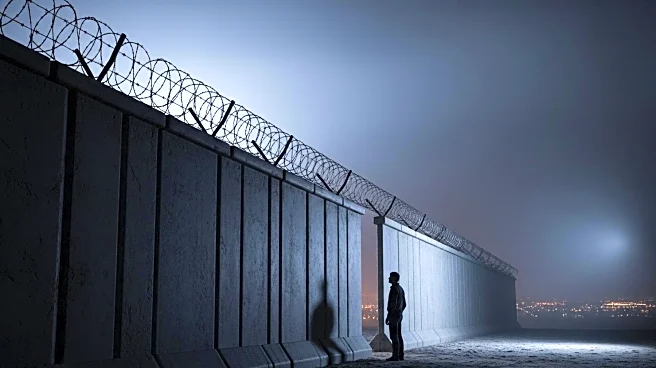What is the story about?
What's Happening?
Hamas is reportedly preventing the evacuation of civilians from Gaza City, as Israeli military operations continue in the region. According to defense officials, threats and attacks by Hamas terrorists have deterred 60,000 to 80,000 civilians from leaving the city, despite the availability of 100,000 tents designated for the fleeing population. The situation has led to overcrowding, with approximately one million Palestinians already living in other tents throughout the enclave. The ongoing conflict between Israel and Hamas has exacerbated the humanitarian crisis, with civilians caught in the crossfire and facing dire living conditions.
Why It's Important?
The prevention of civilian evacuation by Hamas has significant humanitarian implications, as it increases the risk to civilian lives amid ongoing military operations. The overcrowding in tent camps and the inability to safely evacuate heighten the vulnerability of the population, potentially leading to further casualties and suffering. This situation underscores the challenges faced by international aid organizations attempting to provide relief and support to those affected by the conflict. The actions of Hamas may also impact diplomatic efforts to resolve the conflict, as they complicate negotiations and humanitarian interventions.
What's Next?
The international community, including the United Nations and various aid organizations, may increase pressure on Hamas to allow civilian evacuations to proceed. Diplomatic efforts could be intensified to broker a ceasefire or humanitarian corridors to ensure the safety of civilians. Additionally, Israeli authorities may continue to monitor and intercept attempts to smuggle goods into Gaza, which could affect the availability of essential supplies. The situation remains fluid, with potential developments depending on the actions of both Hamas and Israeli forces.
Beyond the Headlines
The ongoing conflict in Gaza highlights broader ethical and legal issues regarding the protection of civilians in war zones. The actions of Hamas raise questions about the responsibilities of non-state actors in conflict situations and their impact on humanitarian law. Long-term implications may include shifts in regional alliances and international policies towards the Israeli-Palestinian conflict, as stakeholders reassess their positions based on the evolving situation.
















